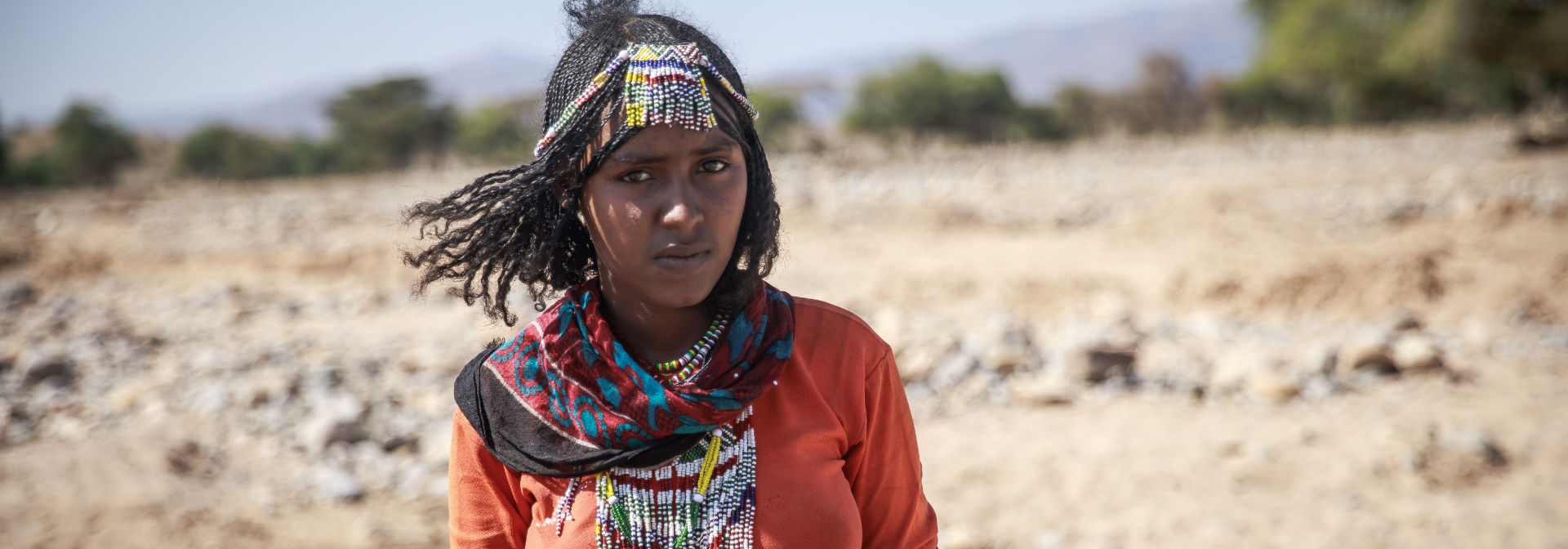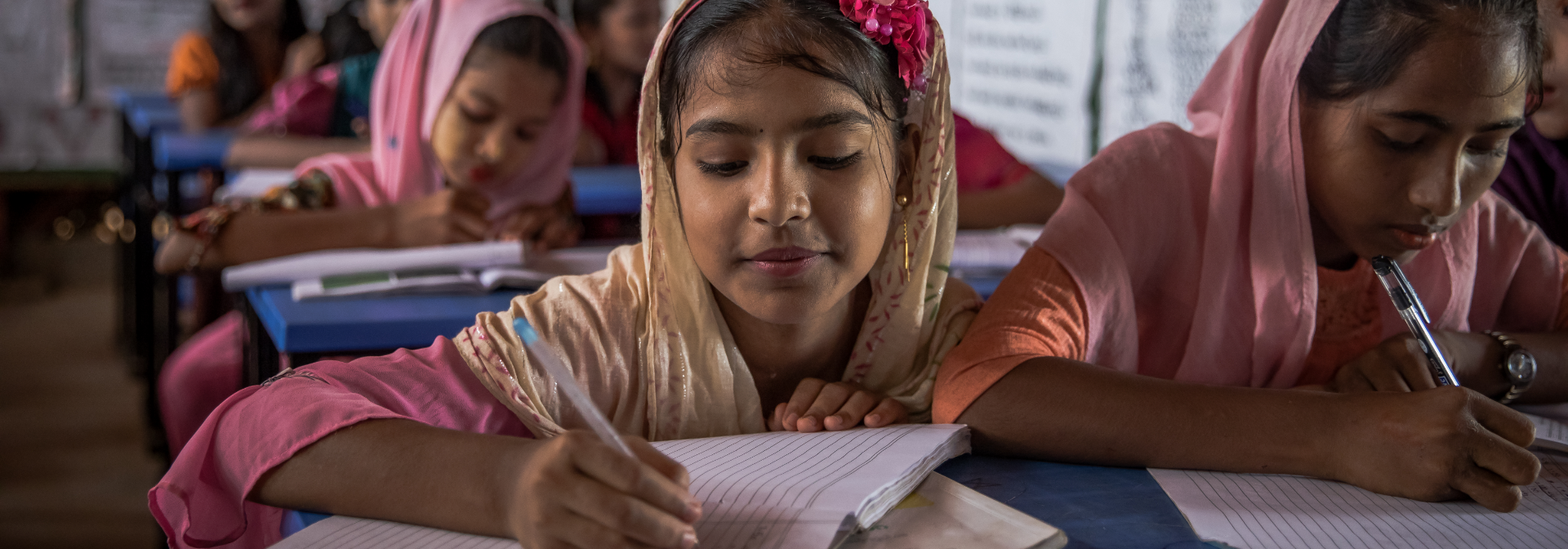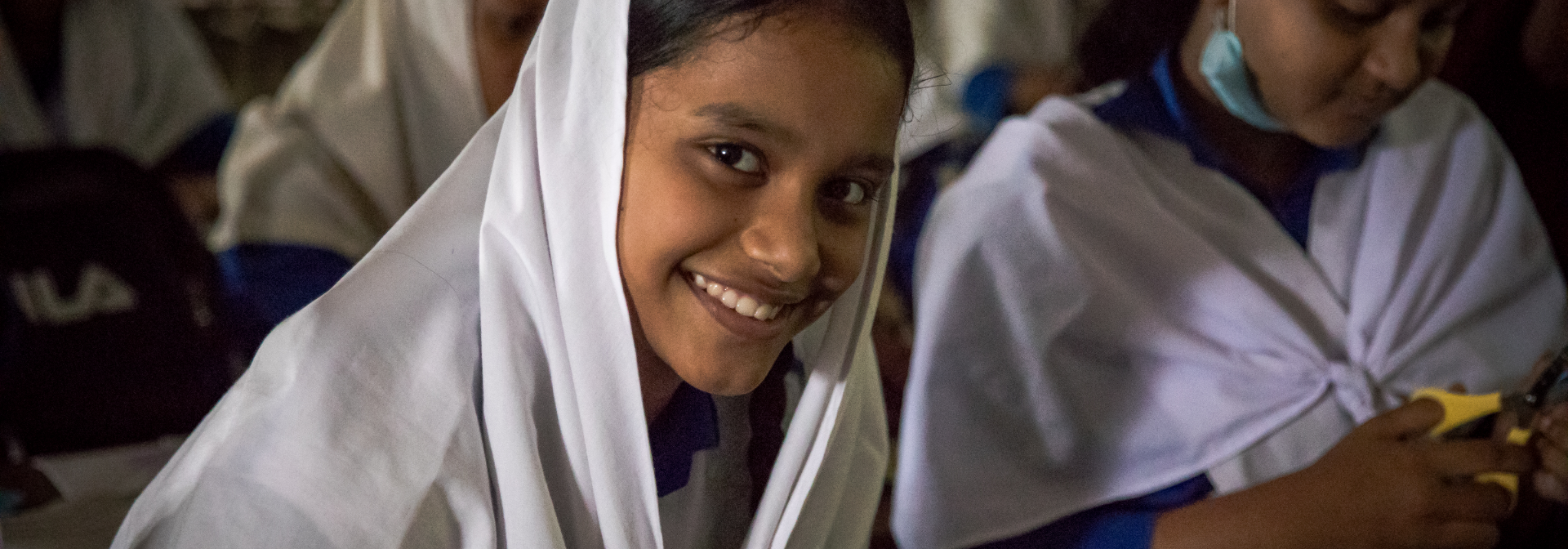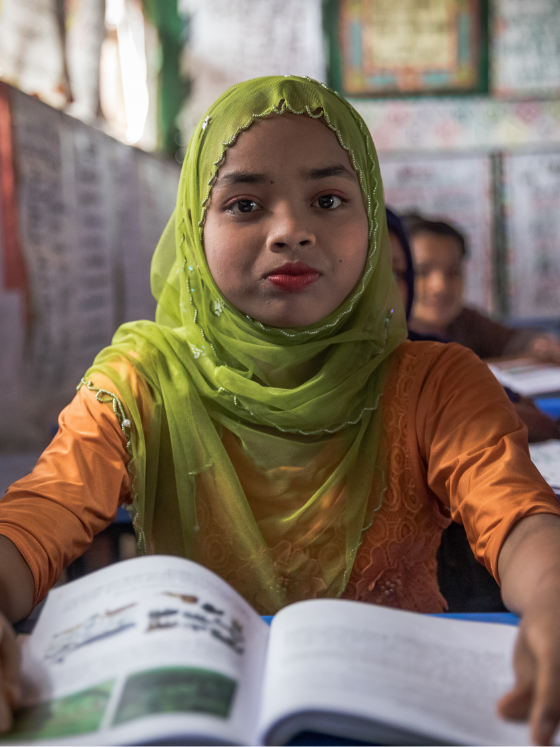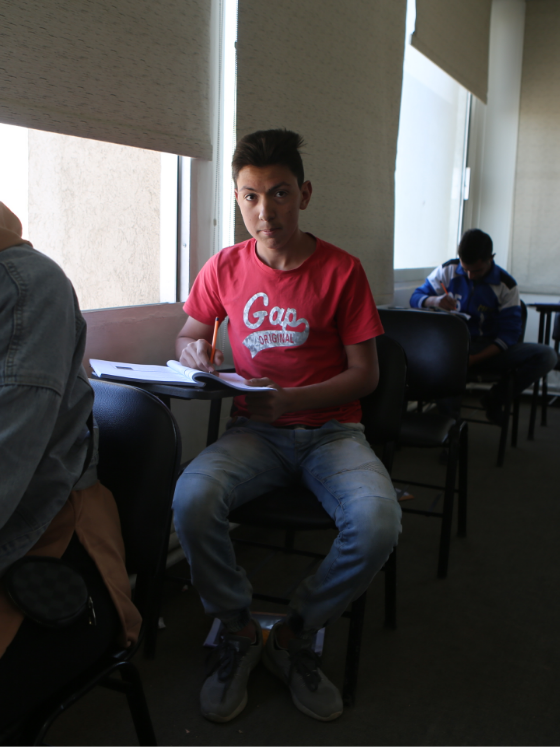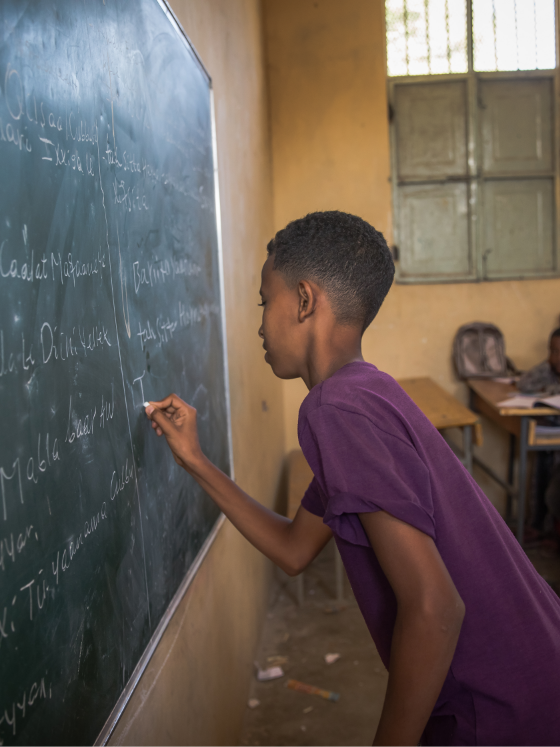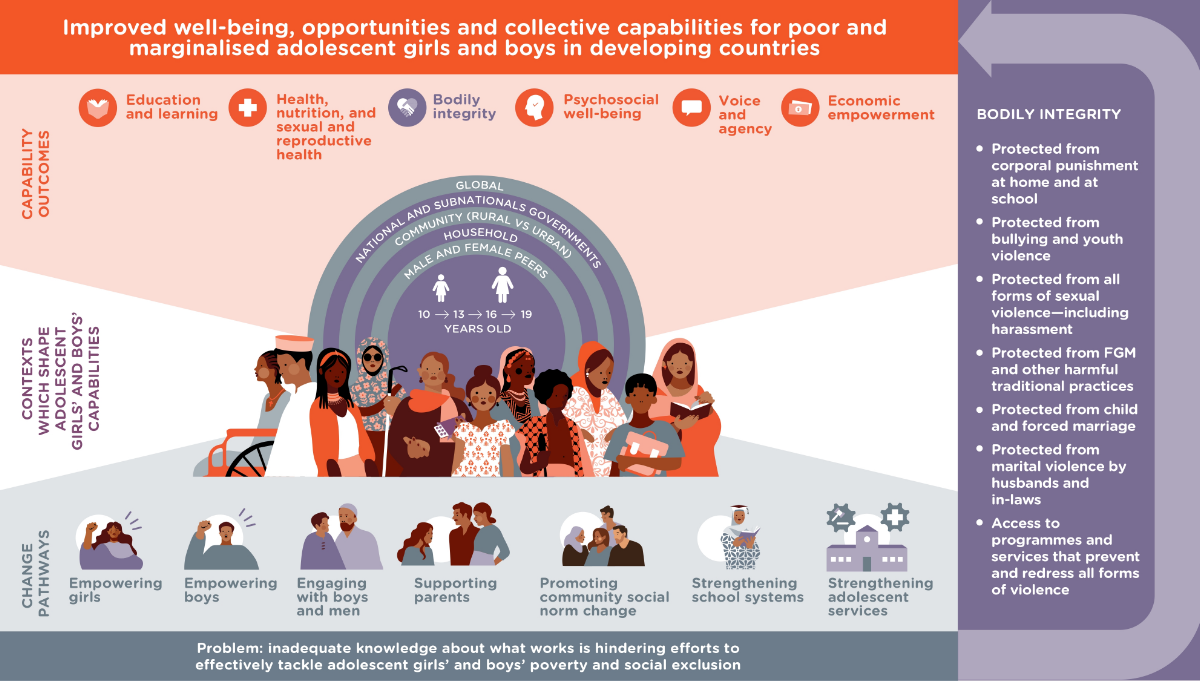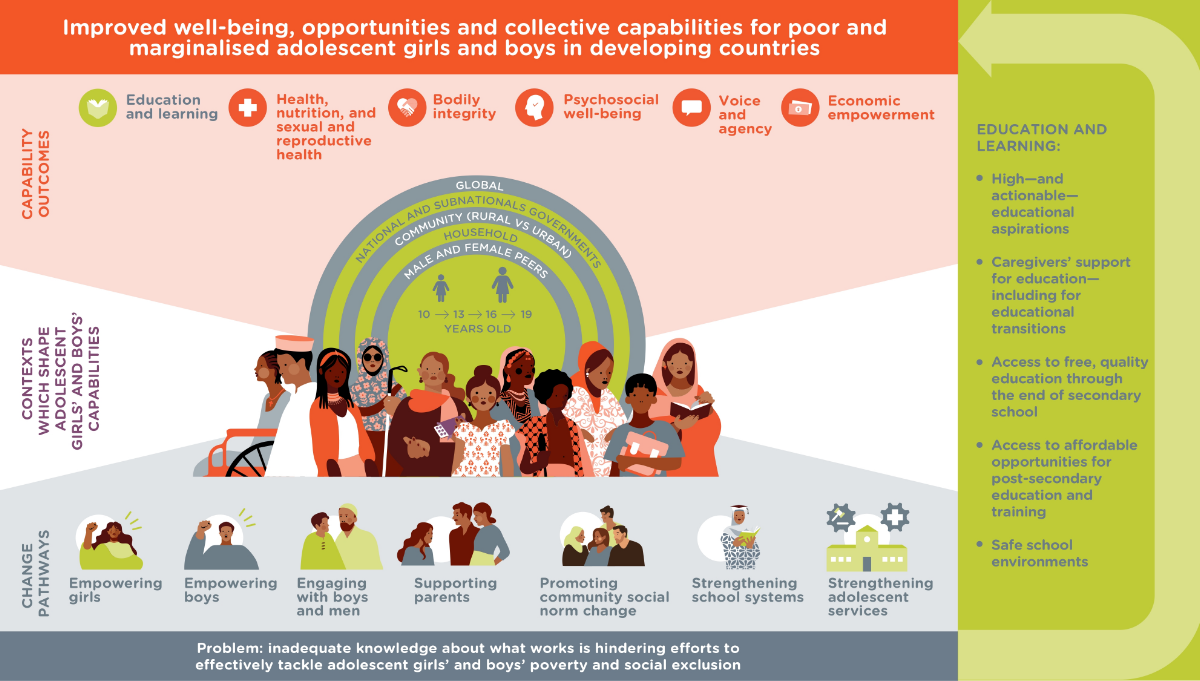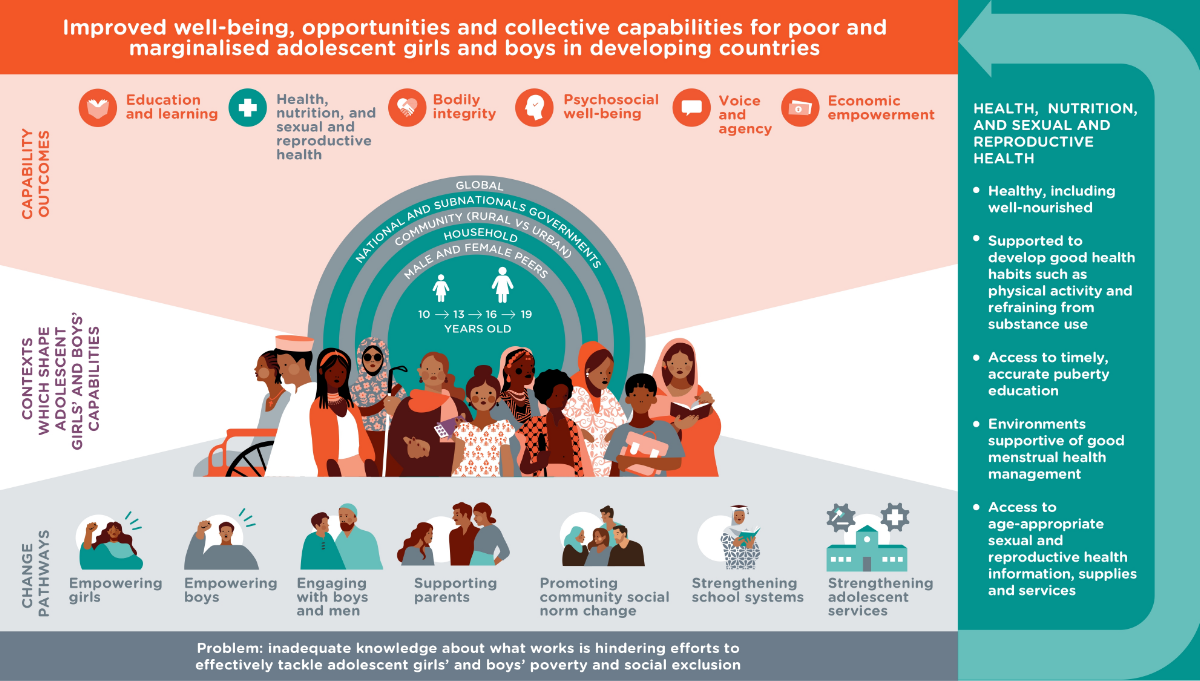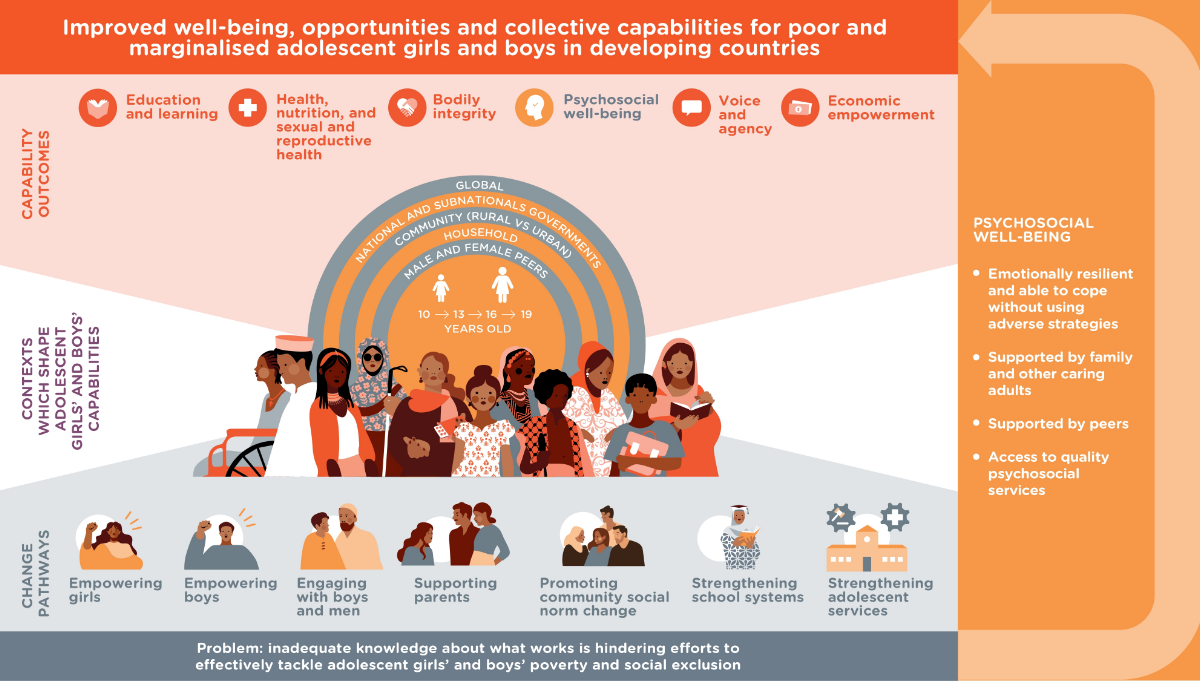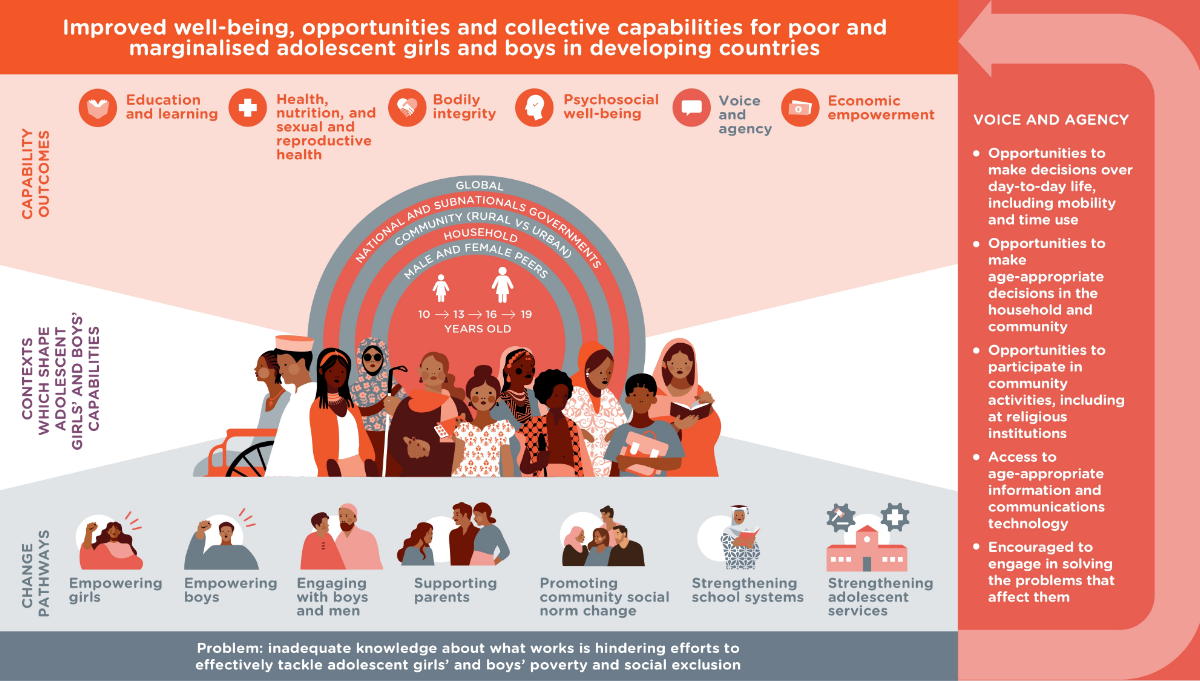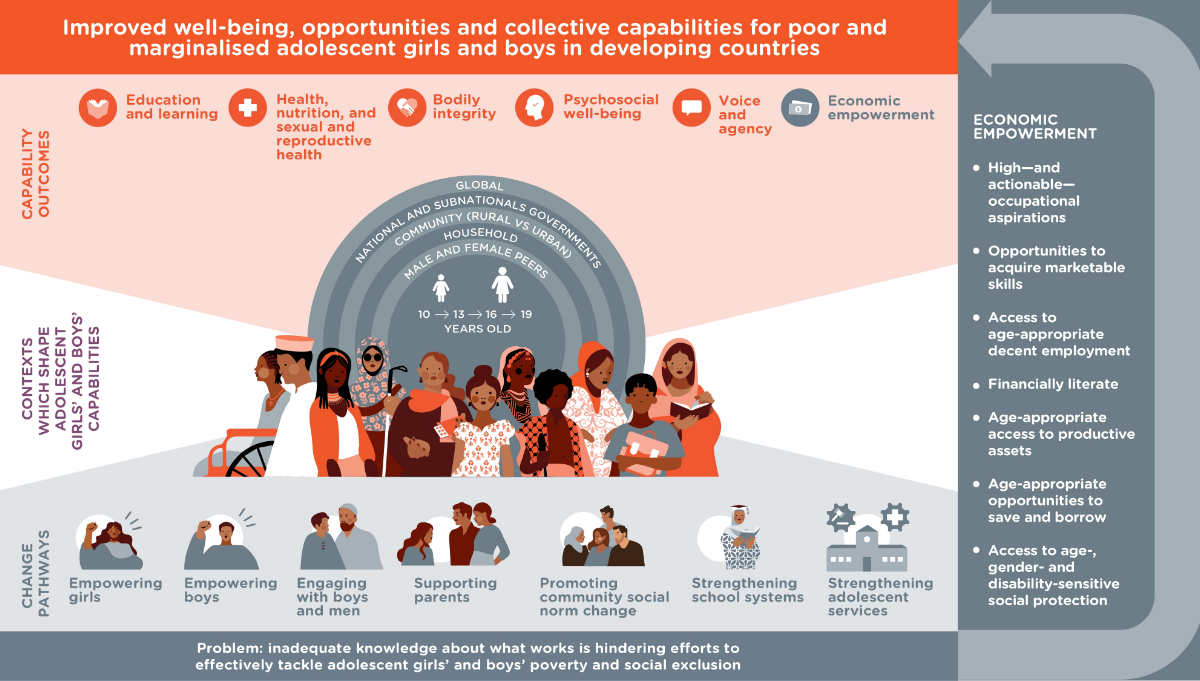Conceptual framework
GAGE’s conceptual framework takes a holistic approach to understanding what works to support adolescent girls’ and boys’ development and empowerment – now, while they are teenagers, and in the future, when they are adults. We focus on how gender norms shape young people’s day-to-day experiences, open up different opportunities for them, and expose them to different risks. Our conceptual framework is based on what we call the ‘3 Cs’ – capabilities, change strategies and contexts:
• Adolescent capabilities
We look at young people’s individual and collective well-being across six broad domains: education and learning; bodily integrity (including freedom from sexual and gender-based violence and child marriage); nutrition and physical health (including reproductive health); psychosocial well-being; voice and agency; and economic empowerment.
• Change strategies
We explore how programmes can maximise their impact by simultaneously intervening at all levels, from the individual adolescent, their family and community, to services and systems.
• Contexts
We investigate how adolescents’ local, national and international environments shape their lives and development trajectories.
Our research methodology
GAGE employs a mixed-methods research approach that includes analysing existent data as well as collecting and analysing new longitudinal quantitative and qualitative data. This combination helps us to understand adolescents’ experiences as they age through adolescence and into adulthood, including which change strategies work for which adolescents.

We will collect three rounds of data with young people who were between the ages of 10 and 19 when the study started. Baseline data was collected between 2017 and 2019. Midline data collection was delayed due to the Covid-19 pandemic but was eventually collected between 2021 and 2023. Endline data collection will take place in 2024 and 2025. Data collection has been staggered across countries to maximise learning.
Other grants:

Save the Children Canada is funding GAGE to carry out a qualitative and participatory research assessment of the multi-year Foundations adolescent sexual and reproductive health programme in Mali, Niger and Sierra Leone from 2022-2027. Foundations is a consortium of implementing and research partners financed by Global Affairs Canada.

UNFPA and WHO funded GAGE to contribute to a multi-country implementation research project on adolescent comprehensive sexuality education in 2022-2023. GAGE was the country partner in Ethiopia and focused on two groups of particularly marginalised adolescents, i.e. young people with disabilities as well as those involved in the sex industry.
Our research questions
Our three main research questions stem from our conceptual framework:
1. How do different groups of adolescents in low- and middle-income countries experience the transition from childhood to adulthood?
2. How are adolescents impacted by programming and policies?
3. What programme characteristics create the largest and most durable impacts on adolescent capabilities?
Policy focus
GAGE’s conceptual framework and research have been shaped by key international agreements that are aimed at improving children’s rights and advancing gender equality – including the Sustainable Development Goals (SDGs), the UN Convention on the Rights of the Child (UNCRC) and the Convention on the Elimination of All Forms of Discrimination against Women (CEDAW). GAGE, which is focused not only on adolescents, but also on the most vulnerable adolescents – including those with disabilities, those who are refugees or internally displaced, and young married girls – will in turn help to ensure that those global agreements are brought to life.
The evidence GAGE is generating aims to ensure that adolescents’ age- and gender-specific needs receive the attention they deserve and will also help us understand how well international agreements are working in practice. With a robust longitudinal evidence base, policy and programming actors will be better placed to tailor their support to young people most at risk of being left behind. Below are some of the key international agreements that are relevant to the research GAGE is leading.

SDGs (Sustainable Development Goals)
Today’s adolescents – an estimated 1.2 billion – represent the largest group of young people the world has yet seen, but they often remain invisible in policy and programming initiatives. How young people navigate the years between childhood and adulthood will impact not only their own futures but also the success of the 2030 Sustainable Development Agenda. It is critical that while the 17 SDGs and 169 SDG targets are now linked to 230 individual SDG indicators, over half of those indicators do not yet have data to bring them to life. One of GAGE’s primary goals is to develop tools and methods for tracking progress for adolescent girls and boys. Below we have mapped out which of the goals and targets have the potential to improve adolescent well-being.
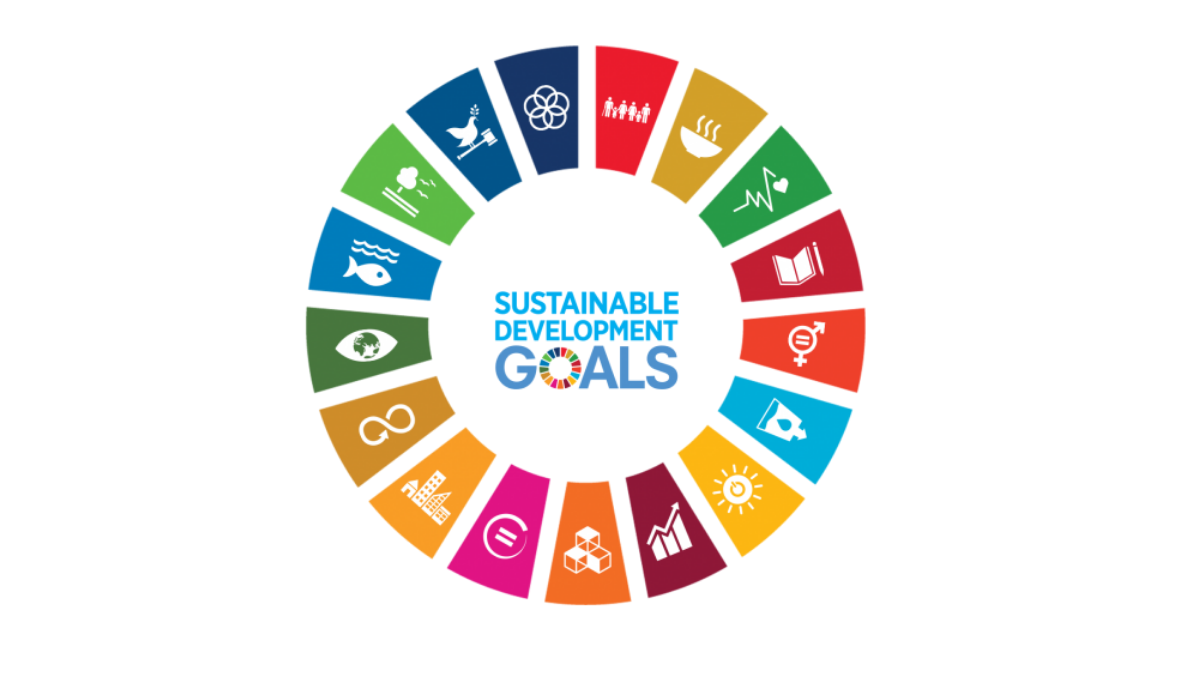

1. No poverty

2. Zero hunger

3. Good health and well-being

4. Quality education

5. Gender equality

6. Clean water and sanitation

8. Decent work and economic growth

11. Sustainable cities and communities

13. Climate action

16. Peace, justice and strong institutions
The UN Convention on the Rights of the Child
The Convention on the Elimination of All Forms of Discrimination against Women
The Beijing Declaration and Platform for Action

